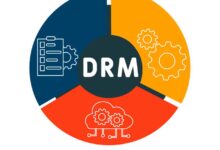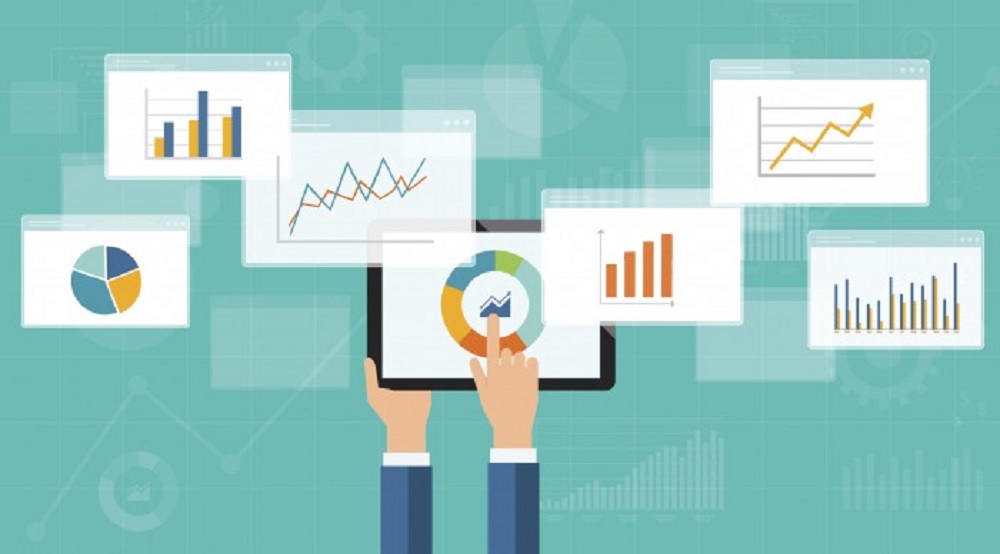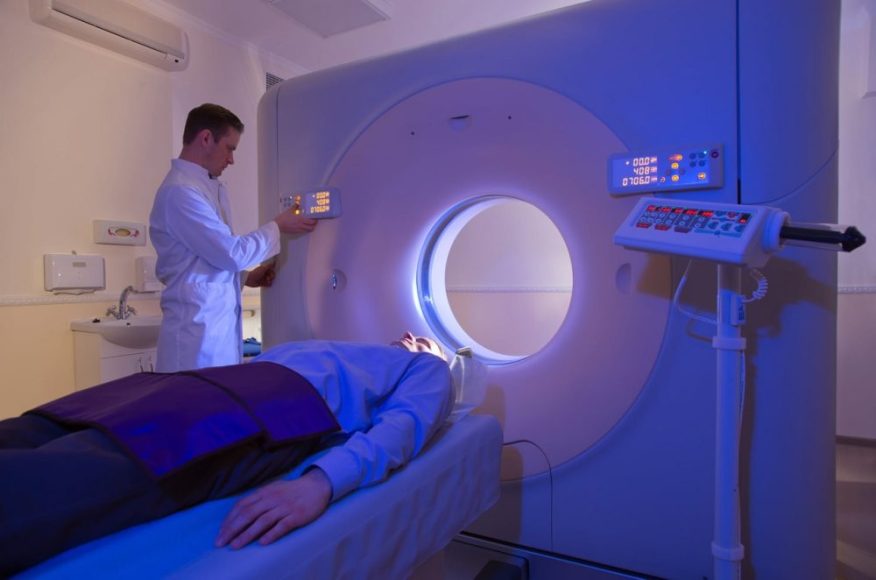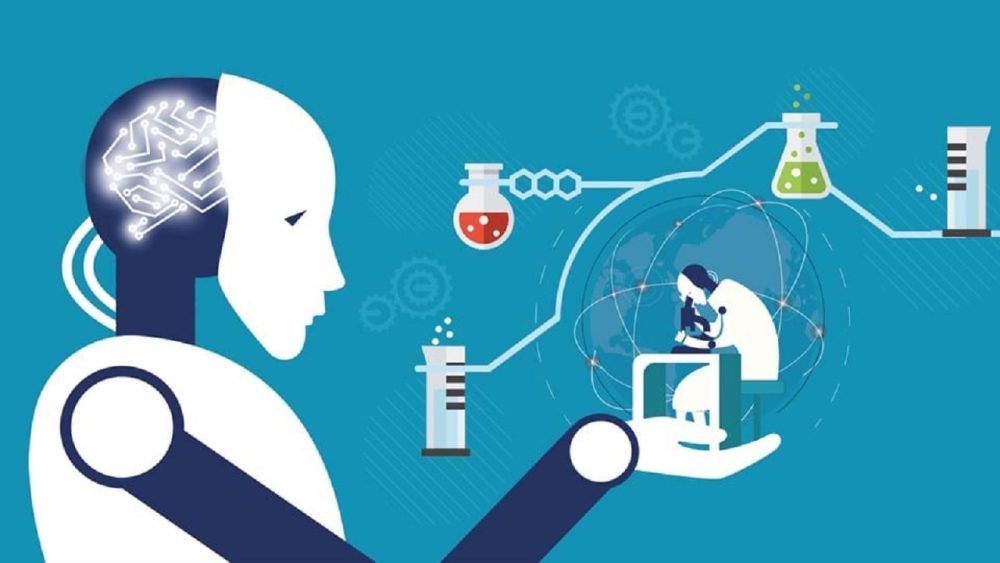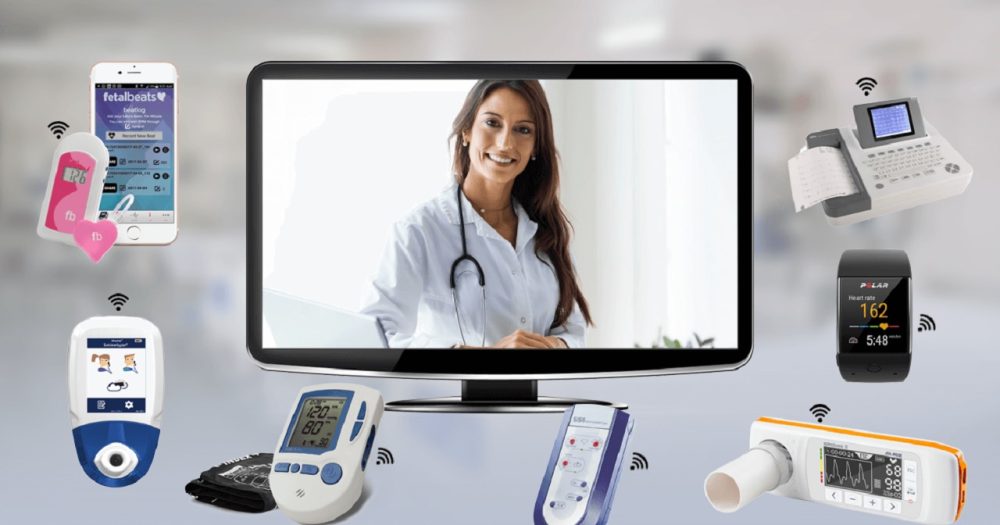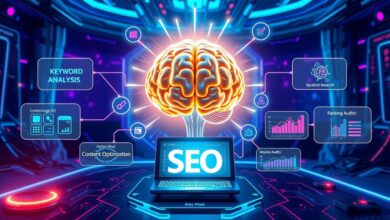The Power of Artificial Intelligence in Healthcare
Revolutionizing Healthcare Outcomes and Medical Research
Artificial intelligence (AI) has emerged as a transformative force in healthcare, revolutionizing the way we diagnose, treat, and manage diseases. The power of AI in healthcare lies in its ability to analyze vast amounts of data, identify patterns, and provide valuable insights that can enhance patient outcomes and advance medical research.
From early diagnosis and precision medicine to predictive analytics and remote monitoring, AI is reshaping the healthcare landscape.
However, to fully harness the potential of artificial intelligence in healthcare, it requires a collective effort and commitment from healthcare professionals, organizations, policymakers, and patients.
Together, we can unlock the immense power of AI and create a future where technology and human expertise converge for better health outcomes and improved healthcare delivery.
Early Diagnosis and Precision Medicine:
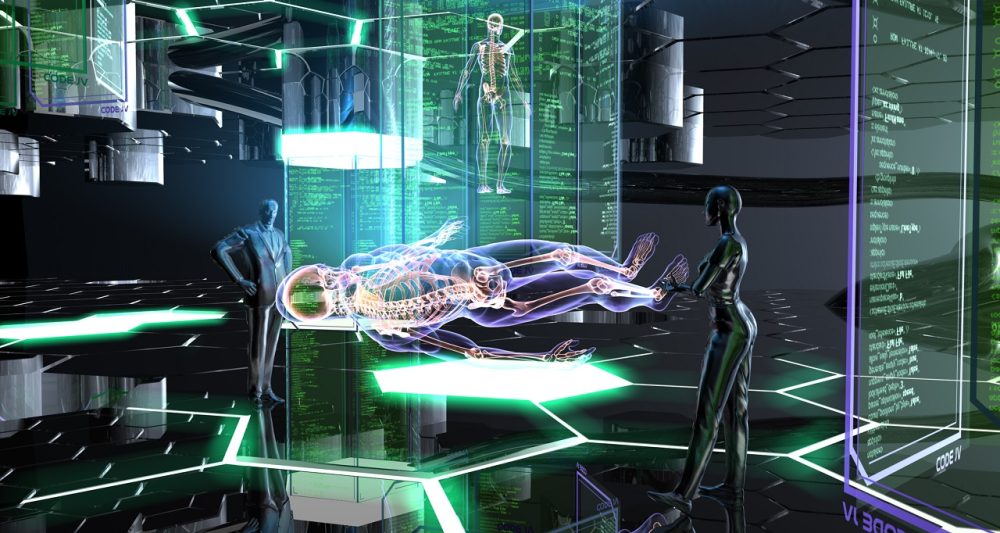
Artificial Intelligence (AI) has emerged as a game-changer in healthcare, particularly in the areas of early diagnosis and precision medicine. AI algorithms, fueled by massive amounts of data and powerful computing capabilities, are revolutionizing the way diseases are detected and treated.
By leveraging AI in healthcare, medical professionals can make accurate diagnoses earlier, develop personalized treatment plans, and improve patient outcomes. Let’s explore in more detail how AI is transforming early diagnosis and precision medicine.
Early Disease Detection:
Early detection of diseases significantly improves treatment outcomes and patient survival rates. AI algorithms can analyze vast amounts of patient data, including medical records, laboratory results, genetic information, and lifestyle factors, to identify patterns and detect early signs of diseases.
For example, AI-powered algorithms can identify subtle changes in imaging scans that might go unnoticed by human observers, allowing for the early detection of conditions like cancer or neurological disorders. This early detection enables timely interventions, leading to better treatment outcomes and potentially saving lives.
Predictive Analytics:
AI’s predictive analytics capabilities play a crucial role in early diagnosis. By analyzing patient data over time, AI algorithms can identify trends and patterns that indicate an increased risk of developing certain diseases. This information enables healthcare professionals to intervene earlier and implement preventive measures to reduce the likelihood of disease onset.
For instance, AI algorithms can assess a patient’s genetic predisposition, lifestyle factors, and environmental influences to predict the likelihood of developing conditions like diabetes, cardiovascular diseases, or Alzheimer’s disease. This empowers individuals to make informed decisions about their health and take proactive steps to mitigate risks.
Genetic Analysis and Precision Medicine:
AI is revolutionizing the field of precision medicine by leveraging genetic analysis. AI algorithms can analyze an individual’s genetic makeup, identifying specific genetic markers associated with diseases or drug responses. This information enables physicians to tailor treatment plans to an individual’s genetic profile, ensuring personalized therapies that are more effective and have fewer side effects.
For instance, AI can help identify patients who are likely to respond positively to a particular medication or are at a higher risk of adverse reactions. This precision medicine approach improves treatment efficacy, reduces trial-and-error in medication selection, and enhances patient safety.
Imaging Analysis:
Medical imaging plays a vital role in early disease detection and treatment planning. AI algorithms excel in analyzing complex medical images such as X-rays, CT scans, and MRIs, providing accurate and efficient diagnosis support. Deep learning algorithms can quickly analyze vast image databases, comparing new images with previously diagnosed cases to identify patterns and anomalies.
AI-powered image analysis can help radiologists detect early-stage cancers, spot minute details in scans, and identify abnormalities that may go unnoticed by the human eye. This assists physicians in making faster and more accurate diagnoses, enabling timely interventions and improving patient outcomes.
Clinical Decision Support Systems (CDSS):
AI-powered clinical decision support systems assist healthcare professionals in making evidence-based decisions at the point of care. These systems integrate patient data, medical literature, treatment guidelines, and real-time information to provide personalized recommendations.
For example, when diagnosing complex conditions or determining treatment plans, CDSS can analyze patient data and suggest potential diagnoses or treatment options based on similar cases and medical literature. This AI-driven decision support enables healthcare providers to make more informed decisions, improving accuracy and reducing diagnostic errors.
Summary
Artificial Intelligence in healthcare has the power to revolutionize early diagnosis and precision medicine. By leveraging AI’s capabilities in analyzing vast amounts of data, identifying patterns, and making accurate predictions, healthcare professionals can detect diseases at earlier stages, develop personalized treatment plans based on genetic analysis, and improve patient outcomes.
AI’s role in medical imaging analysis and clinical decision support systems further enhances accuracy and efficiency in healthcare. As AI continues to advance, it is crucial to ensure data privacy, ethical considerations, and regulatory frameworks are in place to harness its full potential. With responsible and ethical implementation, AI holds immense promise in transforming healthcare and improving patient lives.
Predictive Analytics and Risk Stratification:
In the realm of healthcare, Artificial Intelligence (AI) is revolutionizing predictive analytics and risk stratification. By harnessing the power of AI, healthcare providers can analyze vast amounts of patient data, identify patterns, and make accurate predictions regarding disease risks and outcomes.
AI-driven predictive analytics enables early intervention, personalized care plans, and proactive management of patients’ health.
Let’s delve into more detail on how AI is transforming predictive analytics and risk stratification in healthcare.
Analyzing Comprehensive Patient Data:
AI algorithms can process and analyze diverse sets of patient data, including electronic health records, diagnostic tests, medical imaging, genomic information, lifestyle factors, and social determinants of health.
By integrating and interpreting this comprehensive data, AI algorithms can identify hidden patterns, correlations, and risk factors that may impact patient health.
This holistic view enables healthcare providers to assess patient risks more accurately and develop targeted intervention strategies.
Early Risk Identification:
AI excels in identifying early signs and risk factors associated with various diseases. By analyzing historical patient data and patterns, AI algorithms can identify individuals who are at a higher risk of developing specific conditions, such as cardiovascular diseases, diabetes, or mental health disorders.
Early risk identification enables healthcare professionals to intervene proactively, implement preventive measures, and develop personalized care plans to mitigate the risks. This approach has the potential to improve patient outcomes and reduce healthcare costs by addressing conditions at their early stages.
Read Also: 8 Ways For Supporting Loved Ones in Mental Health Crisis
Disease Progression Modeling:
AI can predict the trajectory of diseases and their progression based on patient data. By leveraging machine learning techniques, AI algorithms can analyze historical data from patient populations to generate predictive models.
These models can estimate disease progression, identify critical milestones, and forecast potential complications. Healthcare providers can utilize this information to make informed decisions, monitor high-risk patients more closely, and intervene at the appropriate stages to prevent adverse outcomes.
Personalized Treatment Planning:
AI-driven predictive analytics can assist in tailoring treatment plans to individual patients. By considering patients’ unique characteristics, including genetic information, medical history, comorbidities, and response to previous treatments, AI algorithms can recommend personalized therapies.
This precision medicine approach helps healthcare providers optimize treatment effectiveness, minimize side effects, and improve patient adherence.
Furthermore, AI can analyze treatment outcomes across similar patient populations, enabling continuous learning and refinement of treatment strategies.
Population Health Management:
AI-powered predictive analytics plays a crucial role in population health management. By analyzing large-scale datasets, AI algorithms can identify population-level trends, risk factors, and disease prevalence.
This information assists healthcare organizations and policymakers in designing targeted interventions, resource allocation, and preventive strategies to address the specific health needs of communities.
AI helps identify high-risk populations, develop preventive care programs, and allocate resources efficiently, ultimately improving overall population health outcomes.
Real-Time Risk Assessment:
AI algorithms can provide real-time risk assessment, alerting healthcare professionals to potential risks or adverse events. By continuously analyzing patient data, including vital signs, laboratory results, and medication adherence, AI algorithms can identify deviations from the norm and issue alerts.
This real-time risk assessment enables healthcare providers to intervene promptly, prevent complications, and provide timely care to patients, especially in critical care settings.
Summary
Artificial Intelligence in healthcare has the potential to transform predictive analytics and risk stratification, enabling proactive and personalized care. By analyzing comprehensive patient data, identifying early risks, modeling disease progression, and tailoring treatment plans, AI empowers healthcare providers to improve patient outcomes, optimize resource utilization, and promote population health management.
However, it is essential to address challenges related to data privacy, ethics, and regulatory frameworks to ensure responsible and equitable implementation of AI in healthcare. With careful integration and collaboration, AI-driven predictive analytics will continue to revolutionize healthcare, enabling better decision-making and improved patient care.
Medical Imaging and Radiology:
Artificial Intelligence (AI) has emerged as a powerful tool in the field of medical imaging and radiology, transforming the way diseases are detected, diagnosed, and treated. AI algorithms, fueled by advanced machine learning techniques, can analyze complex medical images with exceptional accuracy and efficiency.
By harnessing the capabilities of AI, healthcare professionals can improve diagnostic accuracy, streamline workflows, and enhance patient outcomes. Let’s delve into more detail on how AI is revolutionizing medical imaging and radiology in healthcare.
Image Analysis and Interpretation:
AI algorithms excel in image analysis and interpretation, allowing for faster and more accurate diagnoses. By training on vast datasets of medical images, AI algorithms can learn to detect and classify abnormalities with high precision.
For example, AI-powered algorithms can analyze X-rays, computed tomography (CT) scans, magnetic resonance imaging (MRI) scans, and other imaging modalities to identify subtle signs of diseases such as cancers, cardiovascular conditions, or neurological disorders.
AI assists radiologists in detecting early-stage diseases, locating small lesions, and identifying critical findings that may be missed by human interpretation alone.
Improved Diagnostic Accuracy:
AI-powered medical imaging can significantly enhance diagnostic accuracy and reduce interpretation errors. Studies have shown that AI algorithms can match or even surpass human radiologists in certain tasks. AI systems can provide a valuable second opinion, acting as a reliable diagnostic aid to radiologists.
By analyzing the intricate details and patterns within medical images, AI algorithms help radiologists make more precise and confident diagnoses, leading to improved patient outcomes and reducing the risk of missed or delayed diagnoses.
Faster and Efficient Workflow:
AI technologies in medical imaging streamline workflows and improve efficiency. AI algorithms can automate routine tasks, such as image preprocessing, annotation, and data extraction, freeing up radiologists’ time for more complex and critical tasks. AI can triage and prioritize imaging studies based on urgency, ensuring that critical cases receive immediate attention.
Moreover, AI algorithms can assist in generating comprehensive reports by extracting relevant information from medical images and correlating them with patient data. These streamlined workflows enable radiologists to manage their workload more effectively and provide timely reports to healthcare providers.
Quantitative Analysis and Quantification:
AI facilitates quantitative analysis and quantification of medical images. By leveraging AI algorithms, radiologists can obtain accurate measurements, identify subtle changes over time, and monitor disease progression. For example, AI can assist in tracking tumor growth, measuring blood flow, or assessing bone density.
These quantitative analyses provide valuable insights into disease progression, treatment response, and prognostic indicators, aiding in personalized treatment planning and monitoring patient outcomes.
Workflow Augmentation and Decision Support:
AI can augment radiologists’ workflows and provide decision support. By analyzing patient data, including imaging studies, electronic health records, and relevant medical literature, AI algorithms can offer evidence-based recommendations and assist radiologists in making informed decisions.
For instance, AI algorithms can suggest potential diagnoses based on image features, provide relevant differential diagnoses, or highlight key findings that may require further investigation. This decision support helps radiologists navigate complex cases, reduces diagnostic errors, and enhances overall patient care.
Integration with Telemedicine and Remote Imaging:
AI plays a crucial role in the integration of medical imaging with telemedicine and remote healthcare. By leveraging AI algorithms, medical images can be transmitted securely to remote locations, enabling remote consultations, expert opinions, and access to specialized care.
AI algorithms can assist in real-time image analysis, allowing remote healthcare providers to make accurate diagnoses and provide immediate guidance. This integration improves access to quality healthcare, particularly in underserved areas or during emergencies, where expert radiologists may not be physically present.
Summary
Artificial Intelligence in healthcare is transforming medical imaging and radiology, empowering healthcare professionals to provide faster, more accurate diagnoses and improve patient outcomes.
By enhancing image analysis and interpretation, improving diagnostic accuracy, streamlining workflows, and facilitating quantitative analysis, AI is revolutionizing the field. With careful implementation, AI in medical imaging holds immense potential to advance healthcare, improve patient care, and enhance collaboration among healthcare professionals.
Drug Discovery and Development:
Artificial Intelligence (AI) is revolutionizing the process of drug discovery and development, offering new avenues for more efficient and effective drug discovery, accelerated clinical trials, and personalized medicine.
By leveraging AI algorithms, healthcare researchers can analyze vast amounts of data, identify potential drug candidates, optimize drug design, and streamline the drug development process.
Let’s explore in more detail how AI is transforming drug discovery and development in healthcare.
Target Identification and Validation:
AI algorithms play a crucial role in identifying and validating potential drug targets. By analyzing large-scale genomic, proteomic, and metabolomic datasets, AI can identify disease-related biomarkers and molecular targets that can be exploited for drug development.
AI algorithms can analyze genetic variations, gene expression patterns, and protein interactions to uncover novel therapeutic targets and gain insights into disease mechanisms. This enables researchers to focus their efforts on developing drugs that specifically target the underlying causes of diseases.
Drug Design and Optimization:
AI-powered computational modeling and simulation techniques accelerate the process of drug design and optimization. AI algorithms can generate virtual compound libraries and use predictive models to evaluate the potential effectiveness and safety profiles of these compounds.
By simulating the interactions between drug candidates and target molecules, AI algorithms can predict their pharmacokinetic properties, toxicity risks, and efficacy. This helps researchers identify promising drug candidates and optimize their properties before moving to costly and time-consuming experimental validation.
Virtual Screening and Repurposing:
AI facilitates virtual screening and repurposing of existing drugs. Using AI algorithms, researchers can analyze databases of approved drugs and known compounds to identify molecules that may have therapeutic potential for different indications.
AI algorithms can predict the binding affinity of these molecules to specific targets, identify potential off-target effects, and repurpose existing drugs for new therapeutic applications. This approach expedites the identification of potential drug candidates, reduces costs, and accelerates the drug discovery process.
Accelerated Clinical Trials:
AI algorithms can significantly speed up the clinical trial process, which is traditionally time-consuming and expensive. AI can analyze patient data, including electronic health records, genomic information, and real-time monitoring data, to identify suitable patient cohorts for clinical trials.
By identifying patients who are more likely to respond positively to a specific treatment, AI algorithms can optimize patient selection, improve trial efficiency, and enhance the chances of success.
AI can also analyze clinical trial data in real-time, enabling adaptive trial designs and facilitating the identification of early safety signals and treatment efficacy.
Personalized Medicine and Treatment Response Prediction:
AI algorithms enable personalized medicine by predicting individual patients’ responses to specific treatments. By analyzing patient characteristics, including genetic information, medical history, and biomarkers, AI algorithms can identify patient subgroups that are more likely to respond favorably to a particular treatment.
This allows for targeted and personalized treatment strategies, minimizing trial-and-error approaches and improving patient outcomes. AI can also assist in predicting adverse drug reactions, enabling proactive measures to mitigate risks and enhance patient safety.
Data Integration and Collaboration:
AI facilitates the integration and analysis of diverse data sources, fostering collaboration among researchers, healthcare providers, and pharmaceutical companies. AI algorithms can integrate data from genomics, proteomics, electronic health records, clinical trials, and scientific literature to uncover new insights and facilitate knowledge sharing.
This collaborative approach accelerates the discovery and development of new drugs, encourages interdisciplinary research, and promotes data-driven decision-making.
Summary
Artificial Intelligence is revolutionizing drug discovery and development in healthcare by enabling target identification, drug design optimization, virtual screening, and repurposing. AI expedites the clinical trial process, facilitates personalized medicine, and enhances data integration and collaboration.
As AI continues to evolve, it has the potential to revolutionize the pharmaceutical industry, leading to the discovery of novel therapies, improved patient outcomes, and more efficient drug development pipelines.
Remote Monitoring and Telemedicine:
Artificial Intelligence (AI) is playing a pivotal role in revolutionizing remote monitoring and telemedicine, enabling healthcare providers to deliver high-quality care remotely.
By harnessing AI algorithms, healthcare professionals can remotely monitor patients’ health, provide real-time interventions, and enhance healthcare accessibility and efficiency. Let’s delve into more detail on how AI is transforming remote monitoring and telemedicine in healthcare.
Remote Patient Monitoring:
AI-driven remote patient monitoring allows healthcare providers to continuously monitor patients’ vital signs, symptoms, and health parameters from a distance. Connected devices such as wearables, smart sensors, and mobile apps collect real-time data, including heart rate, blood pressure, glucose levels, and activity levels.
AI algorithms analyze this data to detect anomalies, patterns, and trends, enabling early detection of health deterioration or exacerbation of chronic conditions. Healthcare professionals can receive automated alerts, enabling timely interventions and personalized care plans for patients.
This proactive approach improves patient outcomes, reduces hospitalizations, and enhances patient engagement in their own healthcare.
Intelligent Triage and Decision Support:
AI algorithms assist in intelligent triage and decision support in telemedicine. When patients seek remote consultations or use telemedicine platforms, AI can analyze their symptoms, medical history, and self-reported data to assess the urgency and severity of their conditions.
AI algorithms can provide recommendations for appropriate levels of care, prioritize consultations, and assist in diagnosis and treatment decision-making. By leveraging AI-driven decision support tools, healthcare providers can make more accurate and timely decisions, ensuring that patients receive the most suitable care remotely.
Virtual Assistants and Chatbots:
AI-powered virtual assistants and chatbots are transforming telemedicine by providing instant support and guidance to patients. These intelligent systems can interact with patients, ask relevant questions about their symptoms, and provide preliminary assessments and recommendations.
Virtual assistants can help patients navigate through self-care options, schedule appointments, refill prescriptions, and answer common healthcare queries. This automated support reduces the burden on healthcare providers and enhances patient experience by providing 24/7 access to medical advice and information.
Image Analysis and Tele-Radiology:
AI algorithms are enabling image analysis and interpretation in telemedicine. When medical images, such as X-rays, CT scans, or MRIs, are transmitted remotely, AI algorithms can analyze and interpret these images to assist in diagnosis.
AI-powered image analysis tools can detect abnormalities, identify critical findings, and provide quantitative measurements. This enables radiologists and other healthcare professionals to make accurate diagnoses remotely, improving patient access to specialized care, particularly in underserved areas.
Remote Surgical Assistance:
AI facilitates remote surgical assistance, enabling surgeons to perform complex procedures with the help of AI-powered robotic systems. Surgeons can remotely control robotic surgical instruments with precision and accuracy, even in remote locations.
AI algorithms play a pivotal role in real-time image analysis, surgical planning, and intraoperative decision support. These advancements in technology facilitate expert surgeons in providing remote guidance and conducting surgeries, ultimately extending access to specialized surgical care and enhancing patient outcomes through improved human-robot interaction.
Data Security and Privacy:
AI-driven remote monitoring and telemedicine generate vast amounts of sensitive patient data. It is crucial to ensure robust data security measures and compliance with privacy regulations.
AI algorithms can assist in anonymizing and encrypting patient data, ensuring its secure transmission and storage. Additionally, AI can help in detecting and mitigating potential cybersecurity threats, protecting patient privacy, and maintaining the confidentiality of healthcare information.
Summary
Artificial Intelligence is revolutionizing remote monitoring and telemedicine, enhancing healthcare accessibility, and improving patient outcomes. Through remote patient monitoring, intelligent triage, virtual assistants, image analysis, remote surgical assistance, and data security measures, AI enables healthcare providers to deliver high-quality care remotely.
With continued advancements in AI technology, remote monitoring and telemedicine will continue to transform healthcare delivery, expanding access to care and improving patient experiences.
Clinical Decision Support Systems:
Artificial Intelligence (AI) is transforming clinical decision-making by powering advanced Clinical Decision Support Systems (CDSS). These systems leverage AI algorithms to analyze patient data, medical knowledge, and scientific literature to provide real-time recommendations and assist healthcare professionals in making informed decisions.
CDSS holds tremendous potential to improve diagnostic accuracy, enhance treatment planning, reduce medical errors, and optimize patient outcomes.
Let’s explore in more detail how AI is revolutionizing clinical decision support systems in healthcare.
Data Integration and Analysis:
AI-driven CDSS integrates and analyzes vast amounts of patient data from electronic health records (EHRs), medical imaging, laboratory results, genomics, and other sources. By applying machine learning algorithms to these datasets, CDSS can identify patterns, correlations, and trends that may not be apparent to human clinicians alone.
This enables a comprehensive analysis of patient information, facilitating more accurate diagnoses, treatment planning, and monitoring of patient progress.
Clinical Guidelines and Best Practices:
CDSS incorporates clinical guidelines, best practices, and evidence-based medicine into its algorithms. By combining medical knowledge with patient-specific data, CDSS can assist healthcare professionals in adhering to standardized protocols and making decisions that align with current clinical guidelines.
This helps reduce variations in care, improve treatment outcomes, and ensure that patients receive consistent, high-quality care.
Diagnostic Support:
AI-powered CDSS aids in diagnostic decision-making by analyzing patient symptoms, medical history, and test results. CDSS algorithms can compare patient data with vast databases of similar cases, enabling differential diagnoses and highlighting potential conditions for consideration.
This assists healthcare professionals in narrowing down diagnostic possibilities and prioritizing further investigations or consultations. By leveraging AI algorithms, CDSS enhances diagnostic accuracy, reduces diagnostic errors, and supports timely and appropriate patient management.
Treatment Planning and Personalization:
CDSS assists in treatment planning by analyzing patient characteristics, medical history, and available treatment options. AI algorithms can predict the efficacy and potential adverse effects of different treatment approaches, helping healthcare professionals make personalized treatment decisions.
CDSS can suggest optimal drug regimens, dosage adjustments, and treatment pathways based on patient-specific factors, such as genetics, comorbidities, and drug interactions. This personalized approach improves treatment outcomes, minimizes adverse events, and enhances patient satisfaction.
Clinical Alerts and Decision Support:
CDSS provides real-time clinical alerts and decision support to healthcare professionals. AI algorithms continuously monitor patient data and can identify critical changes, deteriorating conditions, or potential medication errors.
CDSS can generate automated alerts, prompting clinicians to take appropriate actions promptly. By providing timely alerts and decision support, CDSS helps reduce medical errors, prevent adverse events, and improve patient safety.
Predictive Analytics and Prognostic Modeling:
AI-driven CDSS employs predictive analytics and prognostic modeling to forecast patient outcomes and disease progression. By analyzing historical patient data, CDSS algorithms can identify risk factors, predict disease trajectories, and estimate prognosis.
This information assists healthcare professionals in developing proactive care plans, identifying high-risk patients who may benefit from early interventions, and optimizing resource allocation. Predictive analytics enables personalized and proactive healthcare management, leading to improved patient outcomes.
Continuous Learning and Improvement:
CDSS powered by AI algorithms has the capability to continuously learn and improve over time. By analyzing outcomes and feedback from healthcare professionals, CDSS algorithms can refine their recommendations and adapt to evolving medical knowledge.
This iterative learning process enhances the accuracy and relevance of the decision support provided by CDSS, ensuring that it remains up-to-date and aligned with the latest advancements in healthcare.
Summary
Artificial Intelligence is revolutionizing clinical decision support systems, empowering healthcare professionals with real-time recommendations, evidence-based guidelines, and personalized treatment options. CDSS driven by AI algorithms improves diagnostic accuracy, supports treatment planning, reduces medical errors, and enhances patient outcomes.
As AI technology continues to advance, CDSS will play an increasingly critical role in transforming healthcare delivery and optimizing patient care.
Conclusion:
The harnessing of artificial intelligence (AI) in healthcare has ushered in a new era of innovation and improved patient outcomes.
AI is revolutionizing various aspects of healthcare, including early diagnosis and precision medicine, predictive analytics and risk stratification, medical imaging and radiology, drug discovery and development, remote monitoring and telemedicine, and clinical decision support systems.
By leveraging AI algorithms, healthcare professionals can make more accurate diagnoses, optimize treatment plans, reduce medical errors, and provide personalized care to patients.
The transformative potential of artificial intelligence in healthcare is immense, but it requires collective action. Healthcare professionals should stay informed about the latest advancements in AI and actively seek opportunities to integrate AI-driven solutions into their practice.
Healthcare organizations and policymakers must prioritize investment in AI infrastructure, research, and training to foster innovation and improve patient care.
Researchers and developers should continue to push the boundaries of AI technology, developing robust and ethical algorithms that address healthcare challenges. Patients should embrace AI-enabled healthcare solutions and actively engage with their healthcare providers to understand the benefits and potential risks.
Together, let us harness the power of artificial intelligence in healthcare to create a future where technology and human expertise converge for better health outcomes, improved medical research, and a more equitable and efficient healthcare system.
